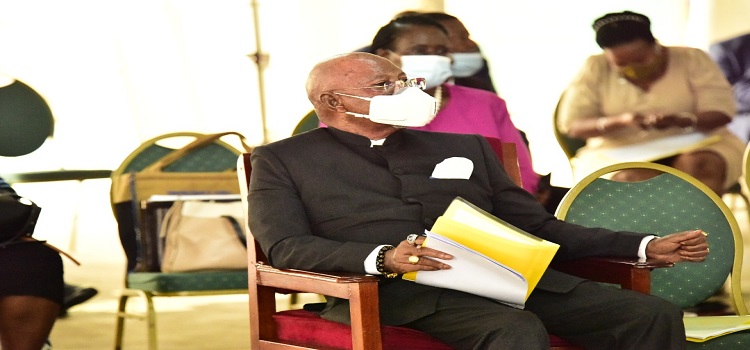Minister Jeje Odongo to MPs: Majority of missing persons in hiding

The Minister for Internal Affairs, Gen. Jeje Odongo, has told Parliament that many of the alleged missing persons in the country could be in hiding for fear of being arrested in relation to election violence.
Gen. Odongo says of the 423 persons listed by Masaka Municipality MP, Hon. Mathias Mpuuga as missing, only 58 have been released or are on remand, with the other 365 not being verified because the list did not indicate time and location of arrest.
“Towards the election day and after elections, more people were arrested for election related offences. These have either been charged in court or remanded, or are still held by security agencies to assist in investigations,” said the Minister.
The Minister said this while presenting a list of individuals arrested since 18 November 2021 to date, where 175 out 269 cases involving riotous situation in the country registered were taken to court, four have been concluded by the Resident State Attorney and 90 are still under inquiry.
He presented the list during a plenary sitting on Thursday, 15 April 2021.
“Of the 1035 suspects arrested, 901 have been charged in court including Hon. Robert Kyagulanyi, 734 have been remanded, 167 have been released on bail, 113 have been released on police bond including Hon. Patrick Oboi Amuriat, 21 have been cleared and released by police,” Odongo said.
He further told Parliament that 51 of the suspects had been convicted and sentenced to community service, caution and imprisonment, whereas 54 persons died including a victim of a car accident.
Speaking to the statement by the Internal Affairs Minister, the Leader of the Opposition in Parliament, Hon. Betty Aol Ocan raised concerns about some suspects who had continued to be held under detention without trial beyond the mandatory 48 hours.
“I stood surety for Hon. Patrick Oboi Amuriat in Gulu and he had been arrested for nothing. He was not allowed to hold meetings yet he was a Presidential candidate, which set him back,” said the LoP.
Kasese Municipality MP Hon. Robert Centenary expressed concerns about some suspects that had been arraigned before military courts yet they were civilians, and others whose trials had delayed and remained on remand.
“These suspects have a right to bail and bond. I do not know how much it takes you to inquire and investigate into the criminalities that were caused by those people, yet you had reasons for why you arrested them,” said Centenary.
Hon. Jane Nabulindo Kwoba (IND. Busia) called on the courts of law to expedite the hearing of the arrested suspects and enable those found innocent to be released and re-unite with their families.
Hon. Stephen Mukitale (IND. Buliisa County) recommended national dialogue as a matter of urgency in a bid to find a lasting solution to the concerns raised.
“These incidents do not market Uganda well as an investment and tourism destination, much that even some Ugandans living in the diaspora have feared to come back,” Mukitale said.
Speaker of Parliament Rebecca Kadaga tasked the Internal Affairs Minister on setting up taskforce to handle the queries of Ugandans whose relatives have been reported missing or dead.
“Today I received the mother of one of the 54 dead in my office. She complained that she had tried to approach all the agencies and carried out a postmortem at her expense. It seems no one is taking interest in these victims,” Kadaga said.
Responding to MPs’ queries, the Minister clarified that the list of arrested individuals presented on the Floor of Parliament were of persons arrested during the electoral period only, adding that civilians being tried in military courts were those who involved themselves in activities associated with the military.
“You are not supposed to hold a gun as a civilian, but only the military should. That is how a number of suspects have landed in the military court, because they have acted in a manner leaning themselves into military activity,” he said.
He also allayed concerns by Hon. Lucy Akello (FDC, Amuru) that congestion in prisons was posing a risk of spreading COVID-19, saying that there was specific management of prisoners whereby new cases of the virus were not mixed with old cases.
